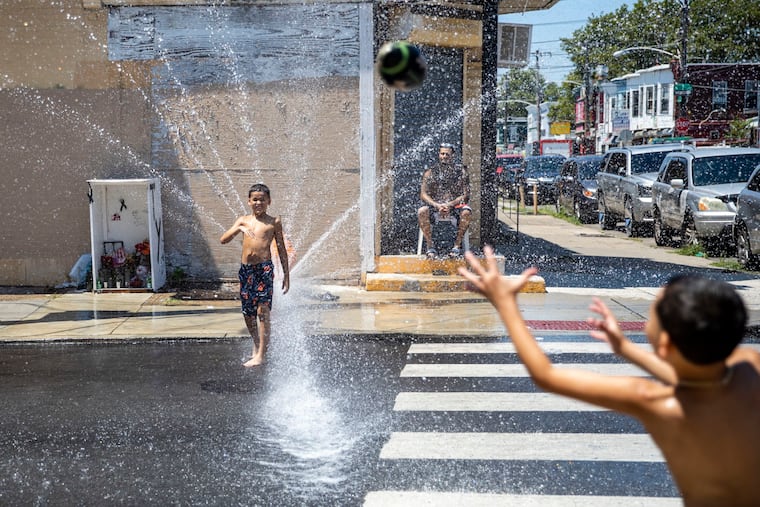Water is a basic human right. So why is Philly resuming shutoffs May 24?
The amount of money collected by shutting off service to customers who can’t afford to pay is a drop in the bucket compared to the incredible damage that shutoffs cause.

During the chemical spill last March that imperiled the city’s biggest water treatment plant, nearly one million Philadelphians feared losing access to safe drinking water. Most residents are not used to living with such a threat. But many of our fellow Philadelphians will experience that fear and uncertainty every year — not because of contamination, but because of poverty.
Water security — the ability to reliably access safe water — is recognized by the Pennsylvania Constitution as a basic human right, yet tens of thousands of Philly residents have their water turned off every year because they are unable to pay their bills.
We understand that the city needs to collect money from residents to maintain its water infrastructure. But the amount of money collected by shutting off service to customers who can’t afford to pay is a drop in the bucket compared to the incredible damage that shutoffs cause.
Without running water, people can’t wash their hands or their dishes, or prepare their food. They have limited use of toilets and bathing. Something as critical as a baby’s infant formula becomes highly stressful to prepare. What’s worse, water shutoffs can destroy families — unaffordable utility bills and utility service terminations are the most common housing issues requiring children to be placed in foster care. As debt accumulates from water shutoffs, it can lead to financial ruin and a downward spiral to homelessness.
The Water Department is seeking approval to increase the typical residential customer’s bill by about 21% over a two-year period. Without access to assistance, this proposed increase will place more families at risk for shutoffs.
Water shutoffs for debt collection are set to resume on May 24, posing a serious threat. Based on data from the Water Department, we estimate tens of thousands of Philadelphians lost water in a typical year before COVID-19.
That these shutoffs will occur during the city’s ever-hotter summers is a recipe for disaster. A healthy adult would struggle during a 90 or 100-plus-degree day with no drinking water. Imagine how it will affect children, older residents, and the seriously ill. The city’s poor neighborhoods without trees can be 15 to 20 degrees warmer than leafy areas in Chestnut Hill. Do we really want to inflict this kind of suffering on our most vulnerable citizens?
Do we really want to inflict this kind of suffering on our most vulnerable citizens?
Philadelphia’s utilities — gas, electricity, and water — have a moratorium on shutoffs during winter months; we believe that a moratorium on water shutoffs should extend year-round to protect people from excessive summer heat.
During the COVID-19 pandemic, Philadelphia put a ban on water shutoffs, and service was reconnected for more than 15,000 customers, though debt for those unable to pay continued to rack up.
In the post-COVID era, major cities such as Chicago declared they would no longer shut off water for many of the reasons cited here.
In 2017, Philadelphia implemented the first-in-the-nation water affordability program that sets monthly bills at a low percentage of household income for participants. But this program has only reached a fraction of those in need. The city also adopted a suite of policy protections in 2022 to protect low-income households from losing water.
» READ MORE: Heat emergency shows why we must keep the water flowing | Opinion
All of these programs and protections are important. But they still fall short of ensuring everyone has access to water.
As the heat of summer approaches, the city should extend the moratorium on water shutoffs and permanently leave people’s water turned on.
We all breathed a sigh of relief when we learned that the chemical spill had not contaminated our water supply and we would not have to worry about finding safe water. That is a right everyone deserves.
Christina A. Roberto is a senior fellow at the Leonard Davis Institute of Health Economics and associate professor of health policy at the University of Pennsylvania. Laura A. Gibson is a senior fellow at the Leonard Davis Institute of Health Economics and a research assistant professor of health policy at the University of Pennsylvania. Robert W. Ballenger is an attorney at Community Legal Services of Philadelphia.